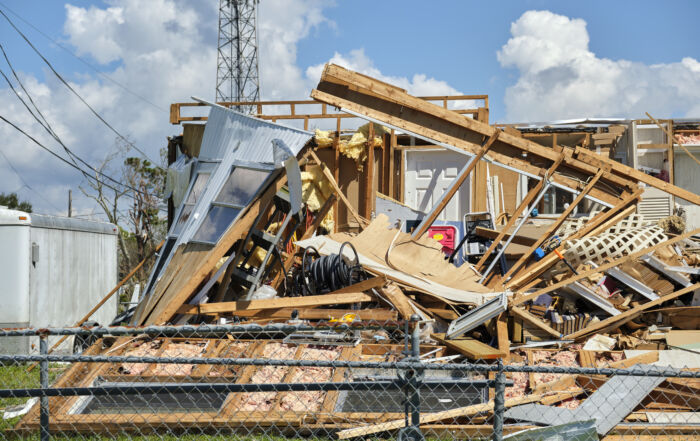Be Prepared! Is YOUR Foodservice Ready to Respond to an Emergency?
The last few months, we have been thinking a lot about emergency or disaster situations. While both of us are “half glass full” type of people, we do recognize the value of having a plan just in case! One only has to see the news to become aware that Mother Nature can, on occasion, be cruel (Hurricanes, Tornadoes, Earthquakes, oh my!). Add in situations created by humans (fires, broken water mains, etc.) and it is clear that odds are something can cause a disruption in your foodservice operation. So, being prepared (just like a Boy Scout) is the right thing to do.
In the first blog for this month, we will provide an overview of how to get prepared. Our second blog will cover some action steps in responding to specific types of emergencies.
We finished out the 2019 SafeBites™ Webinar series on this very topic–being prepared for emergency situations. You can watch the archived version here.
One theme of the presentation was to be prepared! This means identifying what type of emergencies could affect your operation, and establishing a communication and action plan should these occur. We strongly encourage close collaboration with your local health inspector—that individual has great expertise to assist you in developing a good plan and will give final approval to your plan. Your state agencies and federal government offices have LOTS of resources available to assist in developing an emergency preparedness plan specific for your operation. For instance, a foodservice located in Iowa has a pretty small chance of experiencing a hurricane while one in Florida is not likely to have a blizzard! But all foodservices, located anywhere, have a chance that there will be disruption in utility services or that there will be an incident involving bodily fluids (vomitus or blood). In fact, recent versions of the Food Code require foodservices to have written plans to address both of these scenarios. Health inspectors can guide your operation’s actions so that you are compliant with local codes, should this situation occur.
The value of having a written plan is that it provides guidance to all staff members. While the person in charge likely has in their head what should be done if a certain event were to occur, it would be very difficult to communicate that to everyone in sufficient detail in order to achieve a satisfactory outcome. Former CEO Lee Iacoccaonce said, “A plan is not a plan until it is on paper – it is just an idea”.
There are multiple resources available to assist in writing the plans. Templates from Iowa State University and government agencies are available.
The emergency plan should support the foodservice’s food safety plan. For instance, a standard operating procedure (or SOP) in the food safety plan outlining what to do if there is disruption of potable water provides guidance to staff in the case of an emergency.
In the webinar, we also discussed the importance of making the plan known to staff through training and conducting of mock drills. Readers of a certain age may remember bomb drills in school during the Cold War while all of us have been in a fire drill or two (or many more!). The purpose of drills is to exercise the appropriate actions to take so that our reactions are familiar, if not routine.
A closing question to ask yourself is “Does my operation have written guidance on who should act, what actions should be taken, and when these should take place if an emergency situation were to occur?” Those of you familiar with the Lion King will remember the song – Be Prepared. Being prepared is a way to lower risks of injury, illness, and loss. Being prepared is being proactive. Risk Nothing!
READ MORE POSTS
What Have We Already Learned from the Most Recent E. Coli Outbreak?
In late-September and peaking in very early-October, reports of increased Escherichia coli (E. coli) 0157:H7 cases [...]
Ensuring Food Safety in Emergency Foodservice Operations
As we were reminded earlier this month, emergencies can strike unexpectedly, whether due to natural disasters, [...]
Ensuring Food Safety in Emergency Foodservice Operations
Last week, many of us across the United States watched in disbelief as the southeastern portion [...]
Despite Gallup Polls, the US Does Have the Safest Food Supply in the World
As I settled into work one morning last week, a headline popped up on my computer [...]










